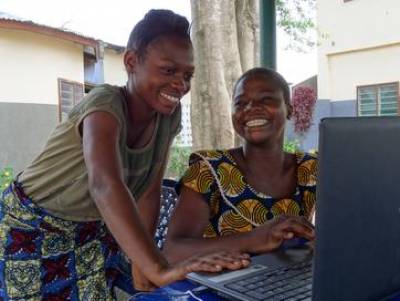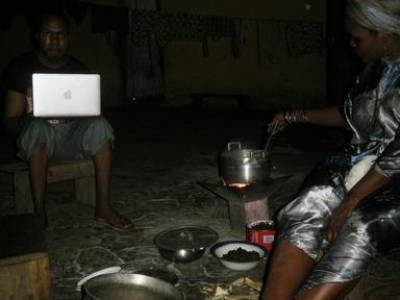Use of mobiles and social media in the Republic of Benin and their implications for cultural identity construction in a collectivistic West-African society
Martina Kainz
Mail: martina.kainz@gmx.at
Phone: +43 676 55 19 658
Adress: Dr. Franz Weismannstrasse 25
3910 Zwettl, AUSTRIA

Martina Kainz is a doctoral candidate in the Institute of Philosophy of the Silesian University of Katowice (Poland) under the supervision of Prof. Dr. Andrzej Kiepas. She works among other things in the Specialist Department for Prevention of Addiction in Lower Austria, with special focus on new media. Her master thesis was about Internet addiction ("Aspects of pathological internet use in context of social networks" in 2012 at the Donauuniversität Krems).
In her new research which represents a part of her dissertation project she wants to analyse the phenomenon of using social digital communication and networks from a completely different perspective: In the Republic of Benin, West Africa, (HDI-Ranking 165 of 187) where the author spent several months there are 11 millions of inhabitants and more than 10 million of mobiles registered in 2014. Despite the fact, that many people use more than one SIM-card, it is a fact that the increasing use of mobiles, especially of Internet-connected smartphones, in this West African country is impressing and influences daily life and identity of the users in many ways.
The main objectives of this research will be to find out, how using mobiles and communication via social media influence the construction of identity in a collectivistic African society which generally defines it's self-conception by the fact of belonging to a social community and emphasises well-being and the goals of the group without putting the focus primarily on individual needs and aims. Furthermore the practical opportunities of using new media will be analysed such as retail trade and business by using mobiles and Internet in outlying areas or the impact of using social media on the rate of analphabetism which is still more than 50% in this West African country.
In the context of the present research and analysis of expert interviews and conversations with people at all ages and social classes in Cotonou and other regions of Benin about their use of digital communication technologies and their inherent implication for identity construction it will be necessary to refer to qualitative methods of research, because this kind of approach seems to be especially useful regarding to the generation of relevant results about the influences of new media on cultural identity.

 Close
Close

